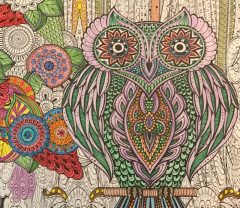Happy New Year! Wanted to start the year with posting an essay. I hope you enjoy. 🙂
Women have generally been oppressed throughout the centuries in Western societies pre-twenty-first century, especially if they are within a society based on a hierarchy of class. The novel initially arose as a genre in the eighteenth century with authors using the novels to find ways to critique those they couldn’t do in normal conversations, especially for women within a patriarchal society that’s dominated by class hierarchy values. The middle-class authors started to write books that held critique of the social classes and gender. Love in Excess, Or, The Fatal Enquiry by Eliza Haywood contributed to the rise and formation of the novel as a genre by using the novel as a way to critique the upper-class and gender roles by utilizing her characters and their descriptions of desire and sexuality in order to display their interactions with one another based on class and gender.
(more…)